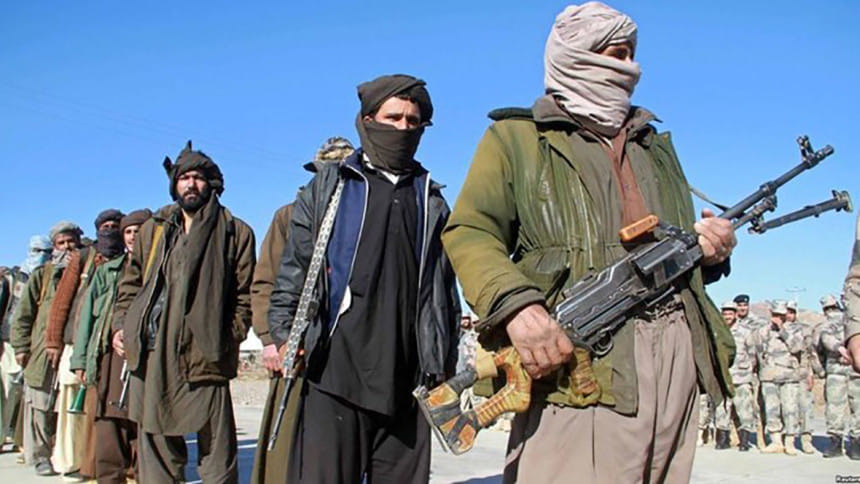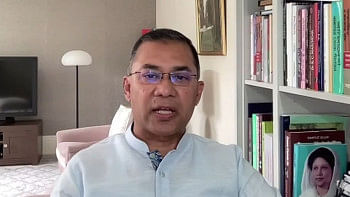India’s Taliban Dilemma

"The future of Afghanistan cannot be its past," India's External Affairs Minister S Jaishankar had told a meeting in Dushanbe, Tajikistan, on July 14. It is precisely the spectre of a rerun of the Taliban rule in Afghanistan from 1996 to 2001 that has been firmly raised with its swift military surge across much of that country in the last few months.
On July 10, India pulled out its diplomatic and non-diplomatic staff from its consulate in Kandahar, Afghanistan, in view of the military surge by the Taliban which closed in on the southern Afghan city. This led to further shrinking of India's diplomatic presence in that country as only the Afghan staffers were functional not only in Kandahar but also in other consulates in Herat and Jalalabad. Kabul was the only city where the Indian embassy was working with Indian diplomats and local personnel. This is a far cry from the last two decades of steadily growing bonhomie between India and Afghanistan.
Ever since the ouster of the Taliban in 2011, India quickly enhanced its role as a soft power pumping in a total of USD 3 billion in two separate tranches for rebuilding a civil war-ravaged Afghanistan, built roads, power transmission lines, setting up a hospital, a dam for irrigation and generation of electricity, a new parliament building, restoring a 19th century palace that symbolised the emergence of Afghanistan as an independent country in 1919 and gifting 600 buses and mini buses, utility vehicles for civic bodies and three civilian aircraft to the Afghan national carrier Ariana.
Given the unfolding scenario in Afghanistan, India's investments in Afghanistan and future projects look so uncertain. This is happy tidings for Pakistan which has always looked at India's expanding footprints in the reconstruction of Afghanistan with suspicion—despite Islamabad's efforts with Kabul in 2002 against granting permission to India to open consulates in that country.
Under the circumstances, what options does India have to continue its strategic ties with Afghanistan? According to former Indian diplomat Vivek Katju, "India can hardly influence the unfolding situation in Afghanistan in any meaningful and sustained way." He opines that the international community would not revert to its anti-Taliban approaches of the 1990s and suggests India should engage with the Taliban by adopting a flexible posture.
As the world began growing increasingly tired of the anti-terror war in Afghanistan since 2017, the Taliban has been seen more and more as an acceptable part of a future establishment in that country. Interestingly, while successive Afghan Presidents Hamid Karzai and Ashraf Ghani were in contact with the Taliban for years, India had avoided any contact with that group. Afghanistan's neighbours Russia and Iran have been in touch with the Taliban, despite their strong reservations about the Taliban. A section of Indian strategic analysts say many key countries are unlikely to deny legitimacy to the Taliban in a future power-sharing structure in Afghanistan. In fact, it is speculated that these key countries may have extracted an assurance from the Taliban that their security interests would not be jeopardised in the event of the Taliban's ascendancy in Kabul.
The key question today is: should India directly engage with the Taliban in talks shedding its long-held stand given New Delhi's strategic investment in that country? What could warrant such a change in stand? Has the Taliban changed its stripes and its regressive worldview? Just some days ago, the Taliban made it clear that it wants girls over 15 years and widows below the age of 45 as wives for its fighters. Can anything be more repulsive? Is the Taliban ready to live down its horrific image of yesteryears? Will it snap ties with other terror groups across the world? Don't forget that the Taliban is negotiating with key international players from a position of strength after its military success and is most likely to try to turn the situation to its advantage without giving away much in return.
Another major challenge for India in any engagement with the Taliban is the latter's close links with Pakistan's military. According to Katju, the Taliban "was signalling for many years that India should not consider it as a Pakistani puppet. In their meetings with Indians, Taliban representatives emphasised that it had not sought to harm Indian projects in Afghanistan. It had also avoided taking strident positions on sensitive Indian concerns." The assessment in New Delhi is that Pakistan will try hard with the Taliban for scaling down of India's presence in Afghanistan. But will the Taliban assert a degree of independence and stop looking at India the way Pakistan wants the group to do?
Another suggestion by strategic experts in India is that India should join the efforts by the Shanghai Cooperation Organization, a security-driven regional forum headed by China and Russia, to stabilise Afghanistan. One of the main objectives of Jaishankar's recent visit to Dushanbe, Tajikistan, where he interacted with SCO leaders and its contact group on Afghanistan, was to get a sense of how the regional organisation wanted to restore peace in Afghanistan and how India's strategic and economic interests in that country could be secured. Before travelling to the Tajik capital, Jaishankar had visited Tehran and Moscow for the same purpose. In Dushanbe, he outlined the broad parameters of what New Delhi thinks should define the future roadmap for Afghanistan: (1) an acceptable compromise based on the Doha process, the Istanbul process and the Moscow format (2) no seizure of power by violence and force and (3) a break from the past. Significantly all the three components are aimed at the Taliban.
Any multilateral solution to the Afghan conundrum is bound to be difficult as countries have divergent perspectives and interests. This means India must factor in those divergences in deciding whether or not to engage with the Taliban. India cannot be oblivious of the fact that the Taliban and terror in Afghanistan pose a serious security threat to it as much as to the world.
Pallab Bhattacharya is a special correspondent for The Daily Star.

 For all latest news, follow The Daily Star's Google News channel.
For all latest news, follow The Daily Star's Google News channel. 



Comments